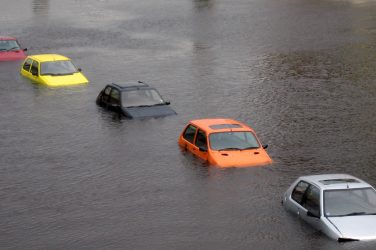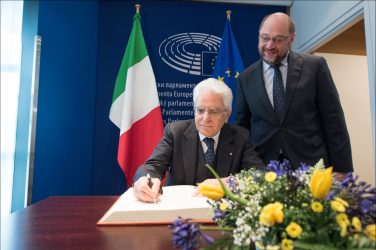The political conflict over Catalan independence that raised to prominence in 2012 has since the beginning had a strong EU element. Before the 2020 Catalan regional elections, E&M‘s author Fernando Hortal Foronda takes a closer look if EU-inspired ideas can bring progress to the Catalan-Spanish conundrum.
Catalan nationalists famously rallied behind the slogan ´Catalonia: a new State of Europe´, highlighting their pro-EU orientation. They also claimed to be upholding European standards of political and civil rights when trying to persuade Spanish authorities against intervening to prevent secession around the 2017 secession referendum.
In a debate where few have changed their mind over the last years, many of those who have changed their position on the issue took into account whether a hypothetically independent Catalonia could be a EU Member State when making up their mind. The reaffirmation of fundamental EU values and principles by EU leaders and officials has been interpreted from supporters and detractors of independence as key statements of support for their positions on the constitutional discrepancy. Maybe, as both the Catalan and Spanish governments have declared their will to overcome the conflict over a negotiating table, they could also look at the EU to seek inspiration in the principle of subsidiarity and the management of identities in the EU.
Even if it is subordinated to the principle of conferral, the principle of subsidiarity introduces a legitimising discourse that is different from state-centric approaches, according to which the rights of States (or any government institution at any level in our case) are fundamentally the main and only reason to consider when distributing power and competences. Instead, this principle implies a discourse according to which the best interest of the citizens and societies (understood as the better making of public policy) is at the centre of the discourse. It does so by establishing that, in areas which do not fall within the exclusive competence of the EU, the Union should only act in so far as the objectives of a given policy cannot be sufficiently achieved by institutions at the central, regional or local level of government.

In the conflict between the Spanish and Catalan governments, thinking the distribution of competence areas through the lenses of the subsidiarity principle is particularly promising and refreshing, as it would challenge the preponderant discourse of both Spanish and Catalan nationalism, for which a powerful and not fragmented Spanish or Catalan state is the logical consequence and the culmination of the existence of the Spanish or Catalan nations.
Additionally, thinking about the conflict for power and competences between the Spanish and Catalan government from a subsidiarity principle brings the local level back in town. Cities and villages have received insufficient power and resources in the Spanish model of decentralisation, and have the potential to deliver to its citizens better than higher levels of government. Strengthening the cities vis-à-vis regions and the state in Spain would decrease the relative importance of the regional and central government, making the conflict between governments in Madrid and Barcelona less prominent.
Thinking about the distribution of power and competences in the frame of the subsidiarity principle (or any other non-state-centric principle) is not a panacea. The nationalist Weltanschauung is not going to suddenly fade away, interest groups in government, the administration, and society will keep their leverage. Building support and consensus behind a redistribution of competences according to subsidiarity logics would not be easy. However, within this conceptual frame, it is possible to find common guidance on how to express disagreement in terms that are acceptable and understandable to the other, how to attempt to persuade the other, and how to eventually negotiate differences and preferences. Different and shifting alliances might emerge, leading to complex equilibria supported by sufficiently large majorities in Spain and Catalonia, that might be integrated by some of those who stood for independence, for the statu quo, and by those who defended intermediate options. In summary, framing the debate in these terms grants politics a chance. It does not follow from this that the debate and the conflict would eventually move forward, but at least, a window would open.
The EU identity is a source of inspiration for its relative high degree of inclusivity.
The EU can also provide ideas on how to manage different and overlapping identities within a policy. First, both the Spanish and the Catalan identity should be further europeanised in some dimensions. This is not to say that many forms of identification with the EU are unproblematic, but to recognise that the EU identity is a source of inspiration for its relative high degree of inclusivity. For instance, the EU identity is not defined in a form that requires from the individual to speak a particular language, have a certain family background or belong to a certain ethnicity. Also, the European identity that is promoted by the European institutions is not understood as an identity in conflict with identities at any other level of government, but instead as an identity compatible with and enriched by other identities.
This European identity thrives in a context where a given level of government (the EU) does not pursue policies to supress cultural difference or discriminate citizens because of their cultural characteristics, and the citizenship perceives that to be the case. Following this logic, reciprocal policies such as Spain adopting Catalan in some form as an official language of the State and not only Catalonia – as well as advocating for recognition of Catalan as a EU language – and the Catalan government renouncing to solely identify Catalan as the language of Catalonia and starting to recognise the bilingual reality of Catalonia could be a stepping stone. These policies can be compatible with affirmative action policies to support speakers of minority languages in certain circumstances. These institutions should also promote narratives that define communities beyond the political, to define communities that transcend linguistic difference and national or ethnic identities, since that would also contribute to the mitigation of a conflict.
In conclusion, any EU-inspired step forward in the Catalan-Spanish conundrum will disappoint nationalist hardliners on both banks of the Ebro river. It will also be a defeat for the parties and interest groups across Spain and Catalonia that thrive in the exacerbation of territorial, constitutional and/or ethnic conflict. However, being able to overcome this will be the standard to evaluate the political skills of the current Spanish leadership and the Catalan leadership that emerges after the 2020 Catalan regional elections. The alternative might be the perpetuation of a political conflict from which only the friends of intolerance have anything to win.
Cover photo: Joan Ribot Mundet; Licence: CC BY-SA 4.0










